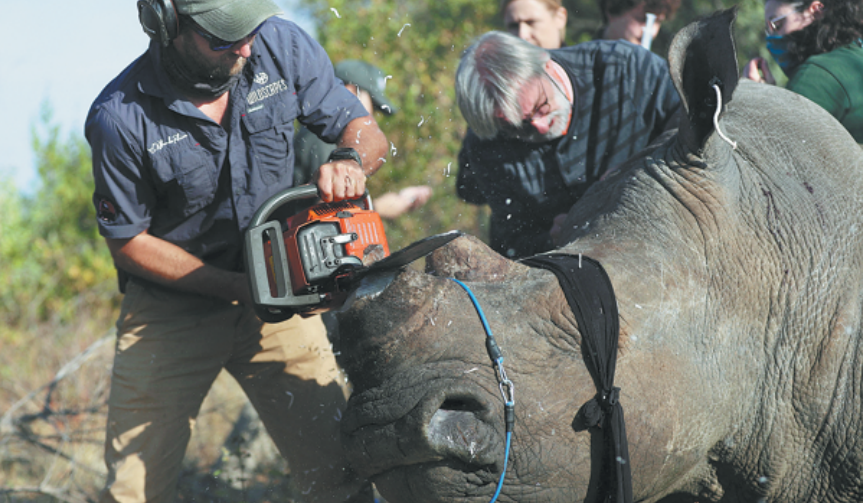S. Africa takes aerial route to fight rhino poaching
By NDUMISO MLILO in Johannesburg, South Africa | China Daily | Updated: 2023-07-04 09:27

South Africa's national parks have put in place various measures to combat rhino poaching which threatens the existence of the endangered animal.
Isaac Phaahla, media specialist for South African National Parks, a leading conservation authority in the country, said they have been constantly revising their strategies to fight poachers, who keep changing their tactics. One of the measures adopted recently is the use of helicopters that carry rangers and deploy them whenever required to arrest poachers.
South Africa is home to the largest rhino population in the world, accounting for 80 percent of the world's total. A total of 448 rhinos were killed in South Africa for their horns last year as against 451 in 2021.
"We have installed cameras in areas with the highest number of rhinos at Kruger National Park. The cameras help us to track suspicious-looking vehicles (in the park), which we intercept and search," said Phaahla, adding the measure has resulted in several arrests.
He said 12 more cameras will be installed in strategic areas. South Africa has also signed a memorandum of understanding with China, Mozambique, Zimbabwe, Eswatini and Vietnam to tackle rhino poaching.
Last year, a South African man named Gumede Sthembiso Joel was arrested at Changi Airport in Singapore with 34 kilograms of rhino horns worth $1.2 million.
The officials of national parks have been visiting schools to educate students about wildlife conservation. These communities share information with the park officials about suspicious movements of people, Phaahla said.
The Southern African Wildlife College is working with South African National Parks to fight poaching. Dian Kobus Louw, from Southern African Wildlife College, said they have been able to track and arrest poachers with the help of dog squads.
The dogs are monitored through GPS collars. As they close in on the poachers, the helicopter airdrops rangers who catch them. The chances of success with this method are 80 percent, Louw said.
He said: "The GPS shows how many times the dogs bark every minute and how fast they are running. They run at a maximum speed of 45 kilometers per hour during a chase."
According to Louw, 200 suspects have been arrested in the last five years and 90 firearms recovered, saving the lives of 80 rhinos.
He said that Kruger National Park started using dogs when the arrest rate was between 3 and 5 percent, but now it has risen to 80 percent.
Isaiah Mashaba, a headman in the Ximhungwe area in Bushbuckridge Municipality, said they are working with the national parks to tackle poaching.
Meanwhile, Phaahla said South African National Parks is in the process of procuring drones to be used to fight poaching.
The writer is a freelance writer for China Daily.
























